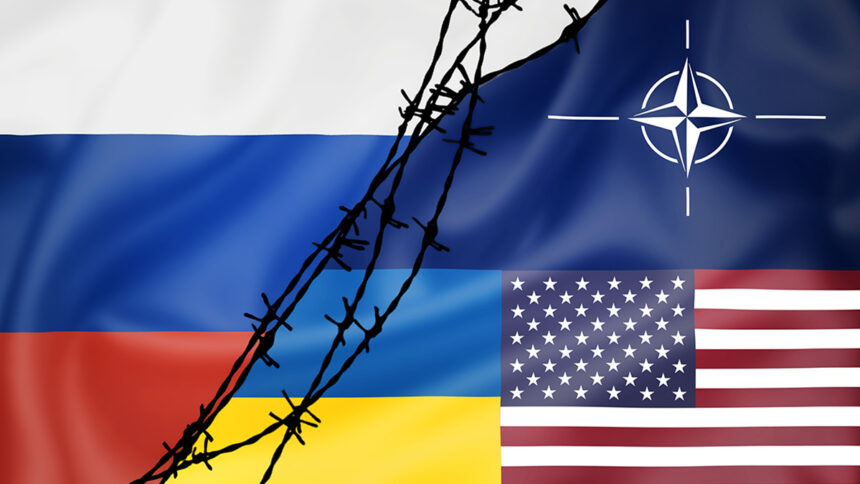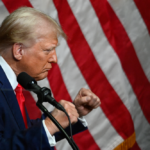The analysis of Tom Switzer’s argument regarding NATO expansion and Russia’s invasion of Ukraine provides multiple observations regarding the intricacies of the geopolitical landscape.
The argument posits that Switzer’s perspective oversimplifies the essence of NATO. NATO functions as a defensive alliance rather than an attacking one, and its decisions are reached through agreement. The notion that NATO’s enlargement directly endangers Russia is disputed, as NATO’s military resources are predominantly national and not concentrated within the alliance.
The article highlights that although Ukraine was assured of eventual NATO membership in 2008, there was no immediate likelihood of joining, therefore raising doubts about how NATO’s enlargement directly provoked the invasion. Ukraine’s accession to NATO was not about to happen soon, and the commitment remained mostly symbolic.
Potential Missed Opportunities: This asserts that the Western countries’ decision not to extend full NATO membership to Ukraine (and Georgia) in 2008 may have been a factor that could have deterred the Russian invasion. The failure to promptly establish a definitive route to NATO membership, which was affected by the pressure exerted by Russian President Vladimir Putin on German Chancellor Angela Merkel, is perceived as a significant strategic mistake.
The article highlights that the new NATO members from central and eastern Europe joined the alliance due to their own concerns about the revival of Russia. The text challenges the notion that Russia should possess the power to reject these countries’ NATO applications, arguing that nations should have the autonomy to determine their own security decisions.
The NATO-Russia Founding Act, adopted in 1997, signifies a significant development in the relationship between NATO and Russia, recognizing that they are not adversaries. The pact was intended to promote collaboration, but it seems that Putin’s Russia ignored it.
The article “Russian Threat Beyond Conventional Forces” refutes Switzer’s claim that Russian military capabilities are not a concern. It argues that Russia presents a substantial threat through unconventional operations in the “grey zone,” such as cyber-crime, political meddling, and disinformation.
The critique posits that the comparison between the conclusion of the Cold War and the conclusion of World War II is fundamentally wrong. In contrast to the post-World War II era, where democratic governments were forcibly established in the defeated countries, the conclusion of the Cold War resulted in the preservation of a significant portion of Russia’s political establishment, which subsequently contributed to the continuation of antagonistic conduct.
The article argues that Western arrogance and self-satisfaction following the Cold War led to the disregard of early indications of Russian aggression. The West is urged to refrain from indulging in unrealistic hopes and to vigorously uphold democratic principles in the face of persistent threats.
Essentially, the argument asserts that NATO’s expansion is not a direct catalyst for Russia’s activities, and Switzer’s viewpoint fails to consider significant intricacies and historical backgrounds.
On NATO Expansion and Russia’s Actions in Ukraine
The idea that Russia’s invasion of Ukraine was driven by fears of NATO expansion over-simplifies complex geopolitical dynamics. Such arguments, moreover, do not fully address how NATO’s defensive nature and the specifics of Ukraine’s membership mitigate these threats.
In an article from two weeks ago in Australian Outlook, Tom Switzer of the Sydney-based Centre for Independent Studies, argued that “The Kremlin’s decision to invade Ukraine has been primarily driven by the threat of NATO’s expansion along Russia’s border.” Switzer offers a well-crafted piece which argues very clearly his case.
However, in so doing, Switzer does not explain how NATO’s expansion and Ukraine’s possible membership might be a threat. Moreover, although Ukraine was promised future NATO membership in 2008, there was no specified date, and the issue subsequently moved to the back-burner. Ukraine membership of NATO was not on the horizon.
Switzer’s argument implies a misunderstanding of NATO, which is a purely defensive organisation, not offensive. Further, it makes decisions by consensus, and members like Hungary and Turkiye would be highly unlikely to allow NATO to threaten Russia. And most of the military assets of NATO countries are not assigned to NATO, but remain national assets.
The greatest threat that NATO members pose to Russia is by their example of successful democratic capitalism, a success which Ukraine has the potential to realise, if it can only maintain its independence and join the EU and NATO. Even today, if Russian citizens enjoyed free media, they would rightly wonder why their country, with all its natural resources, is so much poorer than Western countries.
The big blunder of the West was not offering Ukraine (and Georgia) full NATO membership in 2008. This would most likely have prevented a Russian invasion. The halfway house promise of NATO membership some time in the future was mainly due to Germany’s Chancellor, Angela Merkel, buckling under pressure from President Vladimir Putin, and was an unsatisfactory solution. Ironically, Ukraine has now moved much closer to NATO membership as a result of Russia’s invasion.
In arguing against the expansion of NATO to central and eastern Europe, starting in the 1990s, Switzer seems to overlook the reality that the main pressure for their NATO membership came from the new members themselves. These first new members chose a time of Russian weakness to join NATO out of fear that Russia may regain strength and revert to its old imperial ways. And, of course, they were correct. Switzer seems to be suggesting that Russia should be allowed a veto over these countries’ applications for NATO membership. Russia is also not happy about Finland and Sweden joining NATO. Again, these countries should be fully entitled to make this decision, free from Russian coercion.
Switzer also seems to overlook the 1997 NATO-Russia Founding Act by which a new relationship between the Alliance and Russia was created. According to the preamble, NATO and Russia do not consider one another adversaries. Russia was to have no veto over NATO decisions, and the Act was to have no impact on NATO enlargement. This agreement was of course forged under Boris Yeltsin’s leadership of Russia, and seems not to have been taken seriously by Putin.
Switzer is dismissive of Russian power when he argues that “Russian armed forces lack the military power to conquer Ukraine, much less countries in the erstwhile Warsaw Pact.” In fact, Russia is a very serious threat to not only erstwhile Warsaw Pact members, but the whole West through “grey zone” activities like cyber-crime, financial crime, political influence and interference operations, disinformation campaigns, intellectual property theft, hiring influential locals to do its bidding, and murdering perceived enemies within Western countries. And as Anne Applebaum argues in her excellent new book, Autocracy, Inc., Russia and other autocracies like China, North Korea, and Iran are working together to undermine the democratic world, which needs to better organise itself to defeat them.
Switzer argues that “Expanding NATO violates the wise principle enunciated by Winston Churchill: “In victory, magnanimity.” The “end of the Cold War” is in no way comparable to the end of World War II that Churchill saw. The US wartime leader Franklin D. Roosevelt insisted on the “unconditional surrender” of both the German and Japanese fascist regimes, and democratic political regimes were then imposed on these countries following the Allied victory. In Russia’s case, much of the political establishment, especially the intelligence services, was still in place at the end of the Cold War, while the West naively seemed to just hope that Russia would democratise.
In my view, the fundamental problem is that while the West firmly believed that it had “won” the European Cold War, much of the Russian elite, particularly those within the orbit of President Putin, never accepted that. Russian elites were not happy that their country lost lots of territory and geopolitical status, and was no longer being treated as a great power. They saw Gorbachev as a stooge of the West.
From the very early days of the “post-Cold War” era there were plenty of signs that Russia had other ideas. Russia never stopped its hybrid warfare activities. The Baltics, Poland, and Ukraine gave leading Western countries plenty of warning of this, as they were already experiencing organised crime, dirty money, and information attacks from Russia. But the West ignored those warnings.
As John Lewis Gaddis wrote some 30 years ago, “victories in wars – hot or cold – tend to unfocus the mind. They encourage pride, complacency, and the abandonment of calculation.” One of the many lessons of the Russian invasion of Ukraine is that, looking ahead, the West must resist the temptation to succumb to wishful thinking and staunchly defend its values.
By: John West – the author of the book, Asian Century … on a Knife-Edge, which was reviewed in the Australian Outlook, and executive director of the Asian Century Institute. He has had a long career in international economics and relations, with major stints at the Australian Treasury, OECD, Asian Development Bank Institute, and Tokyo’s Sophia University.
Source: Australian Institute of International Affairs







